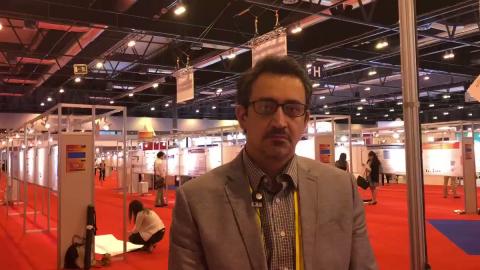All News
EULAR 2019- Day 4 Report
Saturday June 15th was the last half-day at EULAR 2019 but was highlighted by the “late-breaking” (LB) presentations that were presented from the podium and by poster.
Below are the top “LB” presentations from EULAR this year:
Read Article
That’s a wrap! Thank you to all delegates, speakers, submitters and exhibitors for making #EULAR2019 unforgettable! https://t.co/RSa6DkCPt1
EULAR | The European League Against Rheumatism eular_org ( View Tweet)

And off we go. Thank you #EULAR2019. Thank you #Madrid. What a beautiful city. We enjoyed seeing our friends on this side of the planet for a change. We look forward to Frankfurt 2020. Adiós! https://t.co/vT8bURmkpJ
The Journal of Rheumatology jrheum ( View Tweet)

Further commentary in @RheumJnl from Peter Taylor - definitely a space to watch
https://t.co/74St0w4DmS
David Liew drdavidliew ( View Tweet)
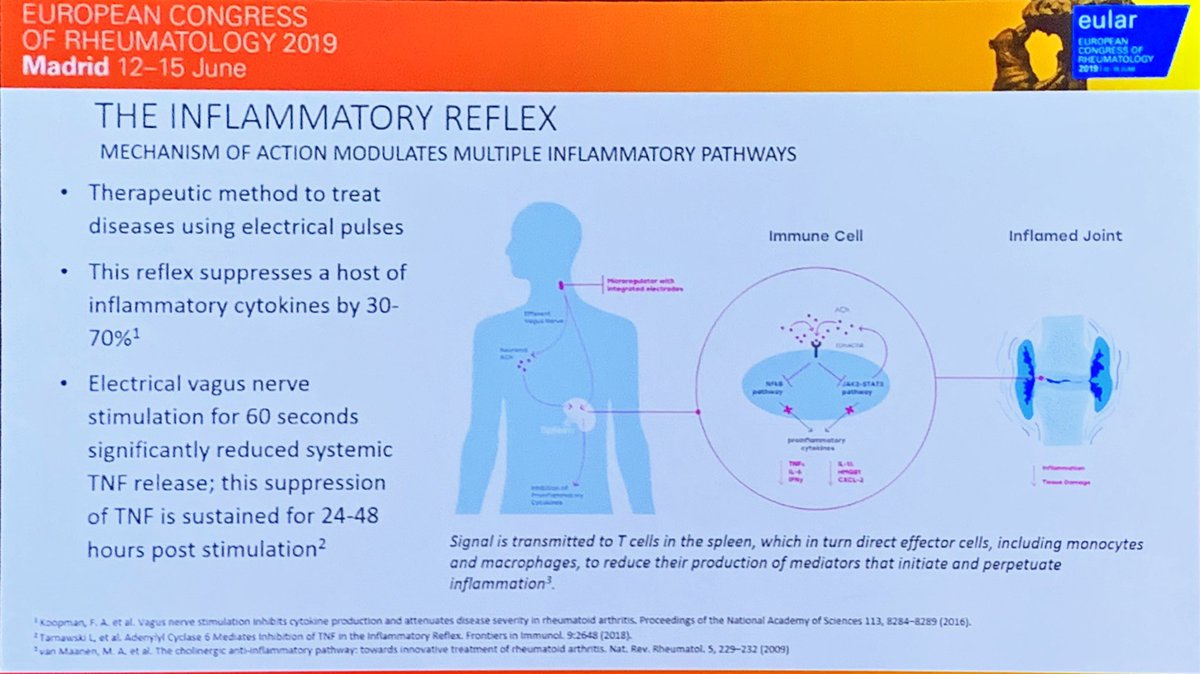
Pilot vagal nerve stimulation for RA: interesting with clinical and immunological response, but surgical complications and lack of imaging data as yet. Also 4x/day worse than daily: too often might breed resistance? Looking forward to seeing more #EULAR2019 LB0009 @RheumNow https://t.co/VZCl0RBlbq
David Liew drdavidliew ( View Tweet)
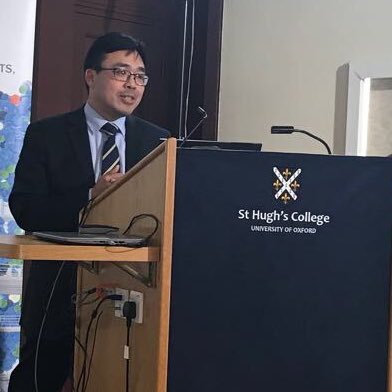
See you next year in Frankfurt or at ACR1 19 #EULAR2020 #ACR19 https://t.co/xVlWViuGgj
Dr. Antoni Chan synovialjoints ( View Tweet)

Safety and Immunogenicity is one of nine educational videos available in the "Therapeutic Update: Biosimilars in Rheumatology" video series, sponsored by Sandoz, Inc. and now available on RheumNow. https://t.co/1vmnEJqOSi #sponsored #biosimilars
Links:
Dr. John Cush RheumNow ( View Tweet)
Dr. Dinesh Khanna discusses the pulmonary outcomes of tocilizumab is systemic sclerosis (focuSSed trial). #EULAR2019 OP0245 https://t.co/KvxoPhvyS6
Dr. John Cush RheumNow ( View Tweet)
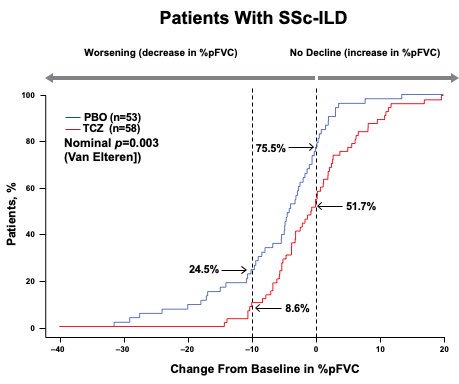
Presentation today at ATS #ATS2019. 1. early diffuse SSc. 2. 64% have ILD-recruited for elevated acute phase reactants. 3. treated with Tocilizumab vs. placebo for 48 wks EARLY SSc; elevated acute phase reactants; anti-IL-6 inhibition--> PRESERVATION OF ILD https://t.co/63lwR1G0Cp
Dr. Dinesh Khanna sclerodermaUM ( View Tweet)
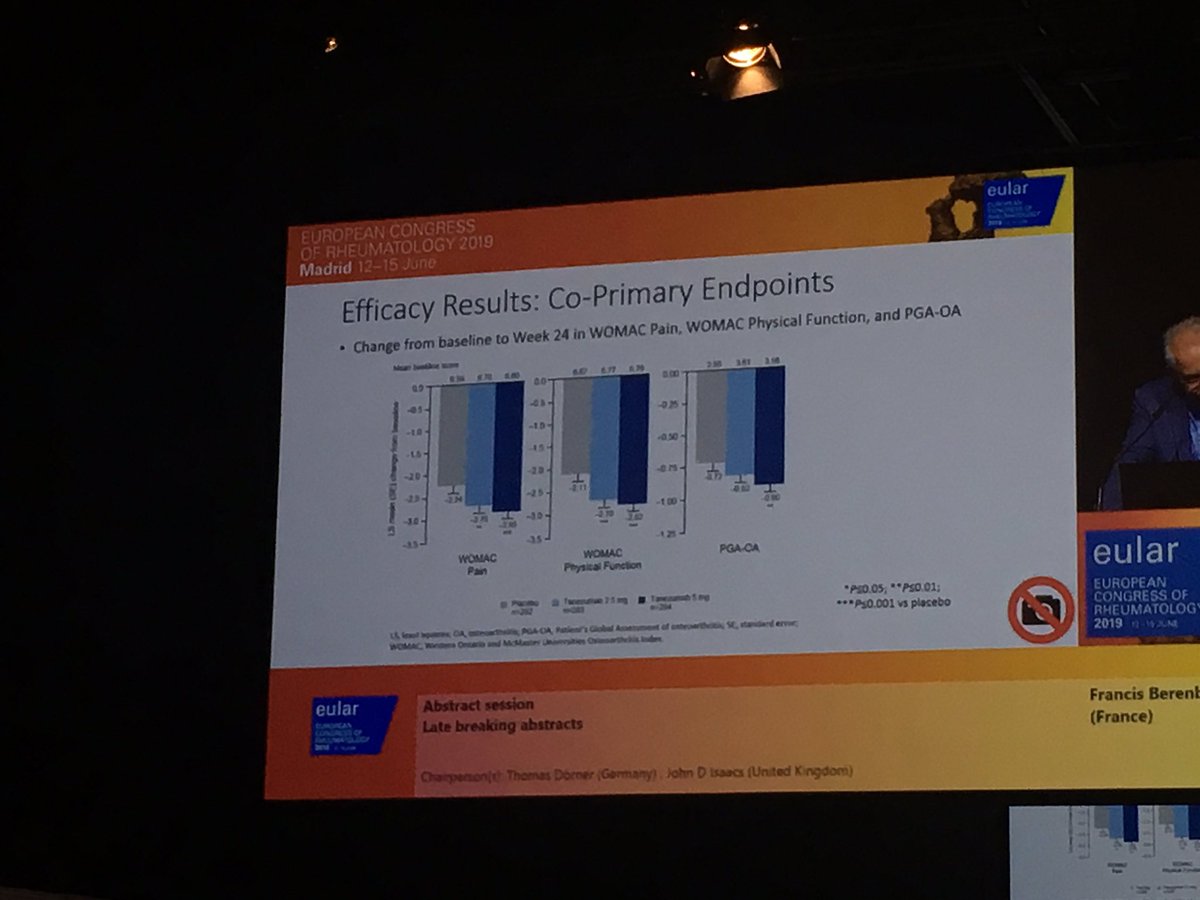
Going beyond scleroderma. 1. Tanezumab is effective for OA related pain and no new safety concerns. #EULAR2019 https://t.co/Uohex1uybS
Dr. Dinesh Khanna sclerodermaUM ( View Tweet)
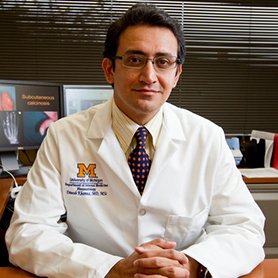
Low dose rituximab for retreatnent of RA. —6 month trial —RCT 1000 mg or 500 mg or 200 mg single dose. —there were more flares with low dose but less SI. — DAS 28 response was similar #EULAR2019
Dr. Dinesh Khanna sclerodermaUM ( View Tweet)

Exercise program 30 min 12w (combination of generalised upper limb and specific hand exercises) helps to improve pain, function, dexterity, QOL over time more so than controlled group #eular2019 @RheumNow
Alberta Hoi tuna0sashimi ( View Tweet)

MTX withdrawal in tofacitinib MR 11mg ORAL shift 1y study @week 24, MTX blindly withdrawal for pt achieved LDA (CDAI <=10) n>200 each arm no difference between arms consistent with anecdotal evidence of how pt can withdraw MTX in real life. #eular2019 @RheumNow
Alberta Hoi tuna0sashimi ( View Tweet)
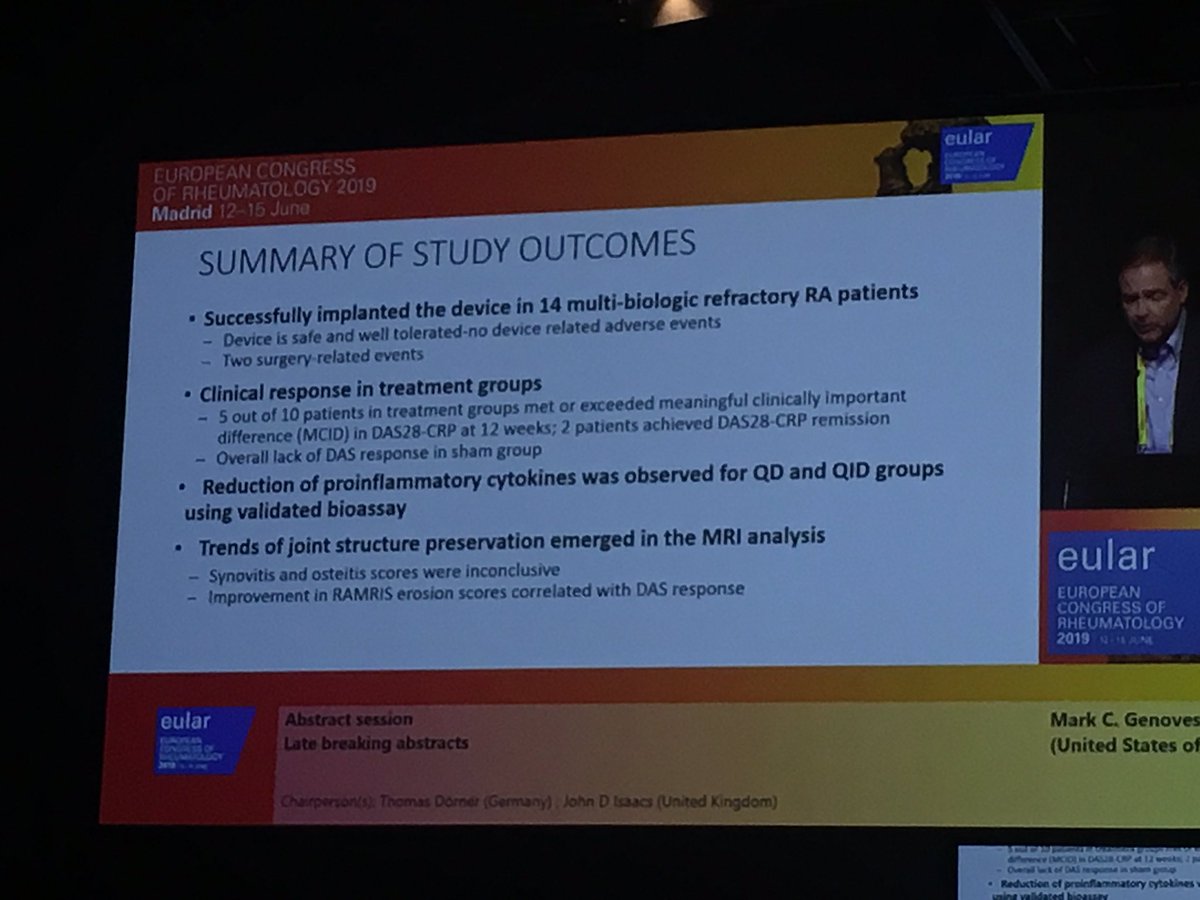
Vagal nerve stimulation for management of RA. Effective in refractory RA #EULAR2019 https://t.co/petEUKty7v
Dr. Dinesh Khanna sclerodermaUM ( View Tweet)
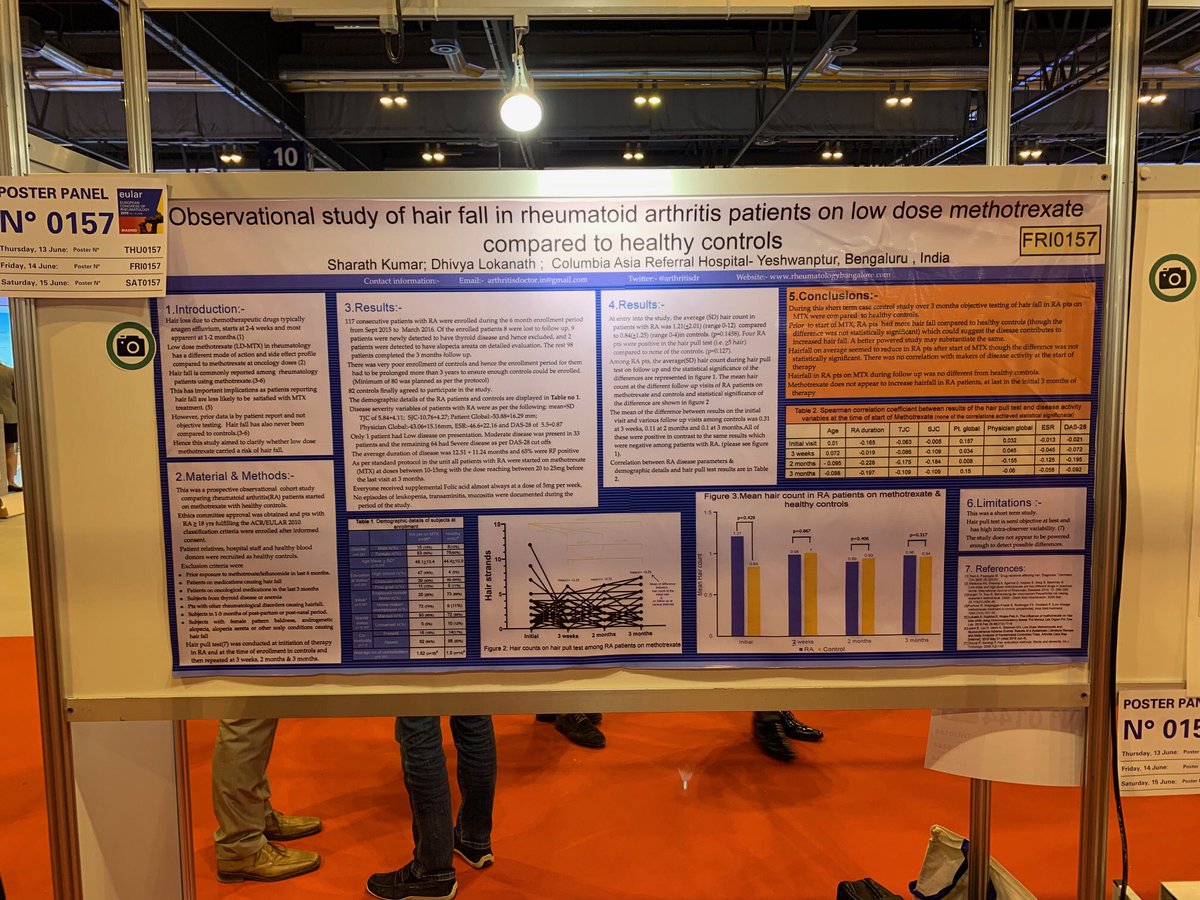
Please please publish this so we can quote it for our patients RT @CreakyJoints: Reassuring news about hair loss and methotrexate: a #EULAR2019 study of around 100 #RA patients found there was minimal hair loss related to MTX therapy. https://t.co/vHis3KZhbz
Alberta Hoi tuna0sashimi ( View Tweet)

#eular2019 H2H abatacept vs adalimumab prev study “AMPLE” showed similar efficacy (single blinded RA <2y study). Now “Early AMPLE” study for seropositive RA with or without HLA shared epitope confirmed previous observation of superiority of ABA at 24w
Alberta Hoi tuna0sashimi ( View Tweet)


It is always an absolute privilege working with Iain
Looking forward to his stint as @eular_org President...his track record suggests there will be some innovations ahead!
@Racegbn @iiiglasgow @UofGMVLS @imidbio https://t.co/932Iz9kayV
Stefan Siebert StefanSiebert1 ( View Tweet)

EULAR HIGHLIGHTS. Ixekizumab beats adalimumab in PsA on combined end pt of skin + joints due to high skin response #EULAR2019 @RheumNow
Janet Pope Janetbirdope ( View Tweet)

EULAR Highlights. 2 new JAKs presented more RA data. Upadacitinib and Filgotinib. Safety of JAKs in meta-analysis -no new safety signals. Tofacitinib use in Corrona = TNFI except slightly more shingles. 7yr Baricitinib data good - no VTE in LTE #EULAR2019 @RheumNow
Janet Pope Janetbirdope ( View Tweet)


